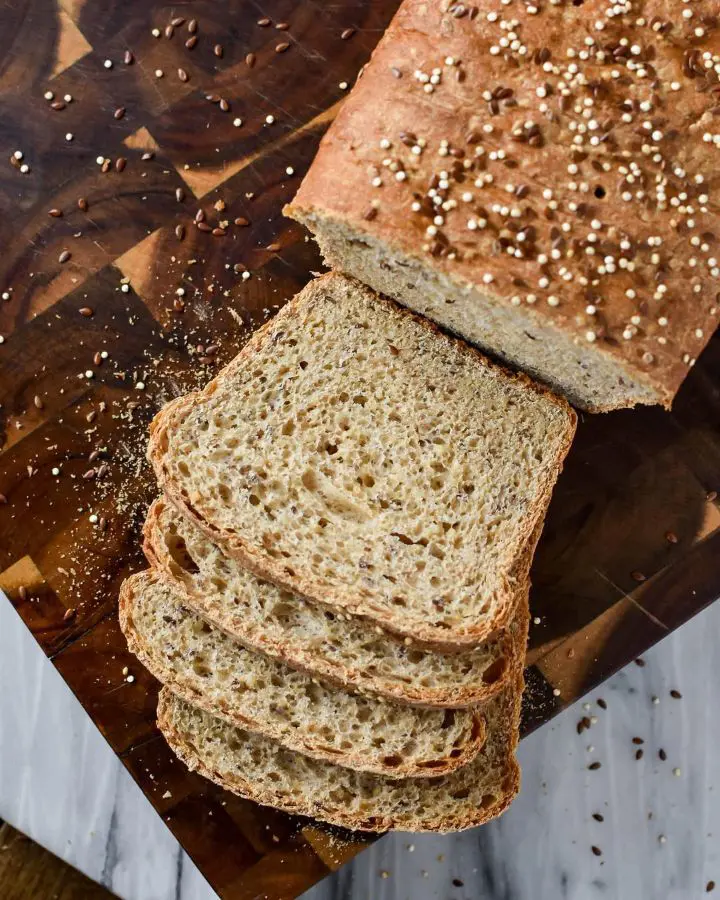Tea For Congestion: Natural Remedies That Will Help You Out
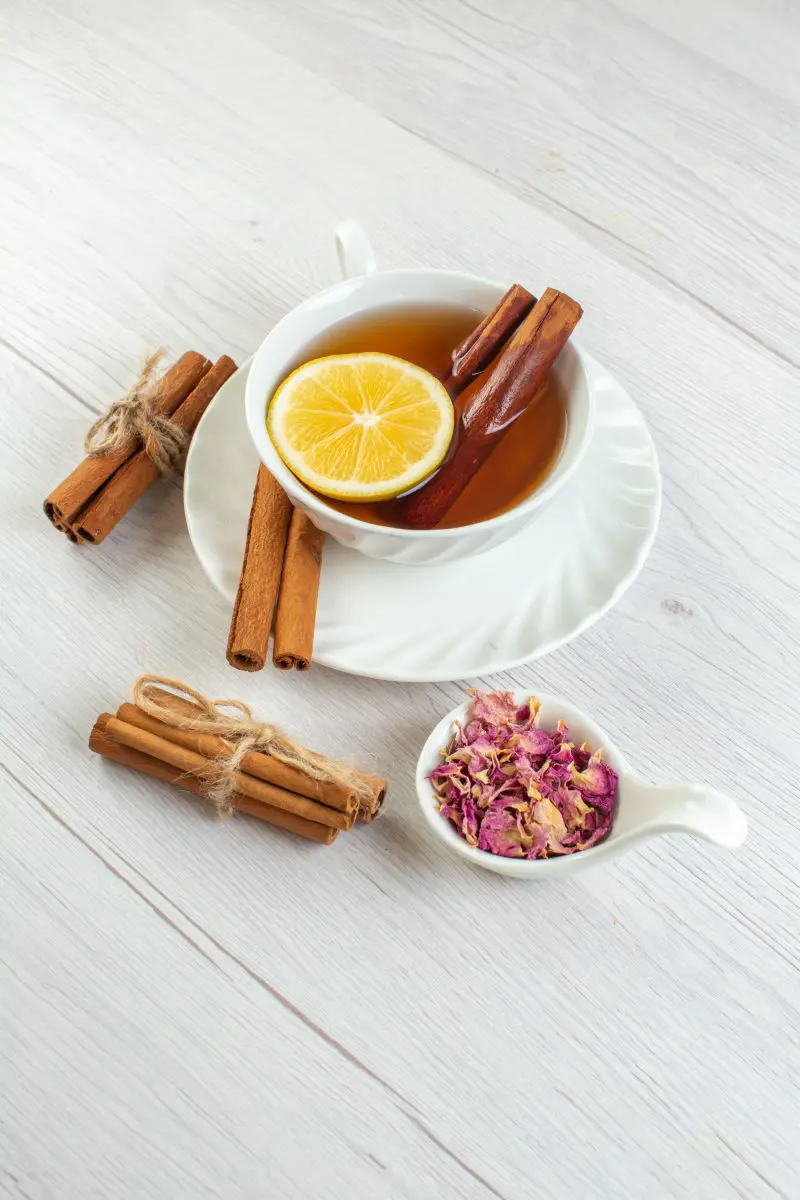
This post may contain affiliate links. If you make a purchase through links on our site, we may earn a commission.
With the arrival of the rainy season or winter season, there is a high chance that people get cold. This happens due to the sudden changes in the monsoon. A slight carelessness and you will suffer from a stuffy nose that disrupts your daily routine.
Luckily, there are some natural remedies like tea that can help to soothe the congestion in your nasal area. Almost all herbs used to make tea hold a good amount of antioxidant and anti-inflammatory components. These components act as fighters to ease out the congestion-related issues. Here, we will explore some of the best tea options that are good for congestion.
1. Ginger Tea
Once the weather starts to become cold, include ginger tea as a part of your daily drink. Ginger has been in use for ages, mainly in Ayurveda. It is mixed with several other herbs to make medicines that are helpful in curing various illnesses.
Ginger has been proven to be filled with lots of good nutrients. The nutrients mainly consist of antioxidant properties like gingerols, quercetin, and zingerone. Those antioxidant properties help to relieve congestion or blockage in the nasal due to cold.
In case you might wondering how to prepare this tea. The way is simple: just boil a cup of water along with crushed ginger and 2-3 powdered cloves. Adding some honey to ginger tea also contributes to dealing with a stuffy nose or soar throat.
2. Thyme Tea
Thyme tea is a green leafy plant. The plant has a natural anti-inflammatory and antimicrobial properties. Here, the role of anti-inflammatory components clear out the mucus in the respiratory tract.
Whereas, the antimicrobial content combats infections. All of which results in reduced swelling and smoother airways in those areas.
Once you become aware of its benefits, it is important to know how to make this tea. Here, you'll need to collect fresh or dried thyme leaves, honey, and fresh lemon. Now, boil 1 cup of water by adding 1-2 teaspoons of thyme leaves and honey. For a slight tangy flavor add a teaspoon of lemon and boil this for 5-10 minutes covering the pot with lid.
3. Turmeric Tea
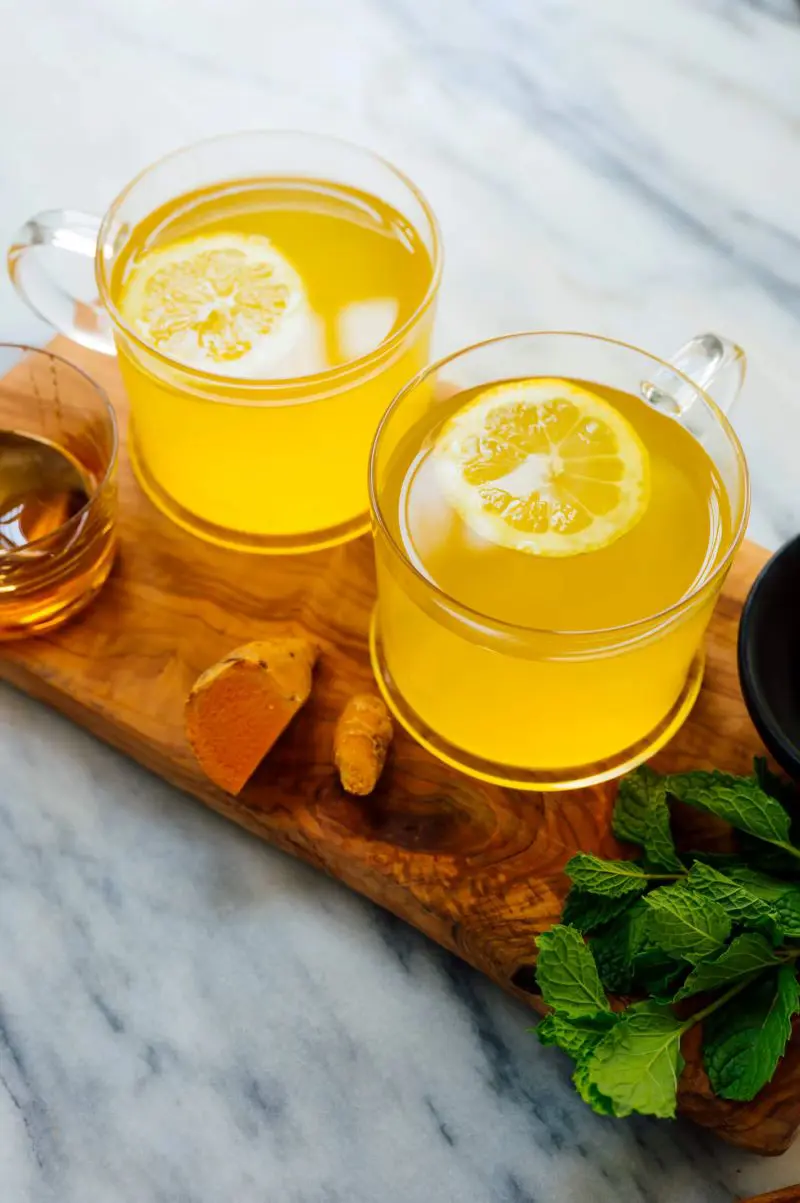
Turmeric has been there in the market for many years. From our ancestors' time down to our time, the application of turmeric became regular. This anti-inflammatory-rich herb helps to relieve swelling in the respiratory tract and makes breathing easier.
On the other hand, it incorporates antibacterial components. A component of such nature acts by nullifying the infection that causes the congestion. Similarly, its antioxidant action increases the immune power by clearing free radicals in the body.
Therefore, the next time one is suffering from a congested nose, all they need to do is get themselves a cup of turmeric tea ready. The process is relatively easy: boil a cup of water along with 1-2 spoons of turmeric, 1 spoon of honey to sweeten, and lemon. This hot drink helps in flushing out the mucus that has accumulated in your nose.
4. Peppermint Tea
Peppermint is one of the green herbs that can be grown easily in our household. Even in the limited space, this herb flourishes well. Whenever I get cold I start to drink peppermint tea and this has helped me to relieve the blockage in my nose to some extent.
The reason is the existence of menthol content in the herb. This content is a natural decongestant that helps to open up the nasal clogging. As a result, it makes the breathing much easier.
Besides its menthol content, the mint is also packed with anti-inflammatory properties. This minimizes the swelling in the respiratory tract. All of these in combination help to ease the congestion issue.
5. Green Tea
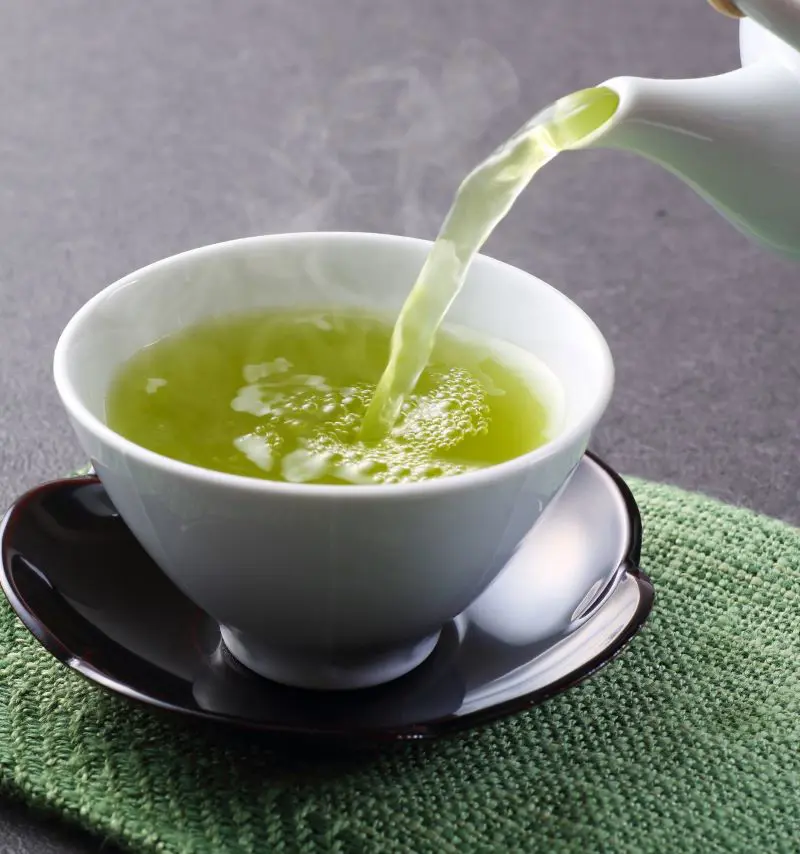
With the rising awareness about health, the majority of people have started taking green tea as a part of their daily drink. Most people use it for weight loss purposes. But did you know that green tea is actually helpful in preventing flu infections when consumed regularly?
Here is how it does. Catechins, an antioxidant property in green tea, has been impactful in reducing inflammation in the ventilatory system by clearing out the mucus. This leads to easy airways in the nasal passages.
Overconsumption of green tea may lead to side effects like low blood pressure, or even diarrhea. It's usually a good idea to consult with an expert before its consumption.
6. Lemon Tea
Lemon is the most accessible fruit or herb. Due to its easy availability, people are able to use it daily. There are multiple uses for lemon be it a culinary purposes or curing illness.
Here, lemon contains vitamin C which is also known as ascorbic acid. The acid has been very effective in dealing with colds and flu. The use of lemon in the tea helps to reduce mucus and allows easy breathing by clearing nasal passages.
The acidic content in lemon tea soothes the respiratory tract and reduces congestion. As a result, you feel much better after drinking lemon tea.
Making a cup of lemon tea is easy. All you need to do is boil a cup of water in a pot and squeeze 1-2 tablespoons of lemon juices. Also, add honey for an extra soothing effect and boil it for 5-8 minutes with the lid on. There you have your anti-cold warm drink.
7. Chamomile Tea
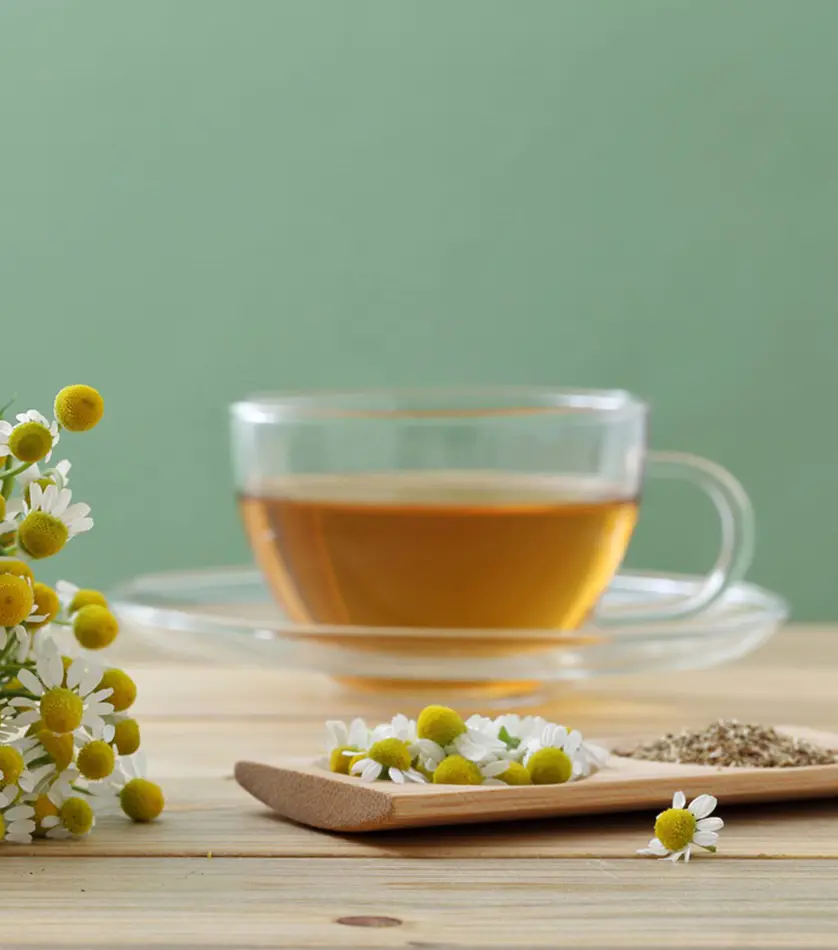
Chamomile is a flower which has white petals. Those white petals are dried out and used to make chamomile tea. This tea has relaxing and shooting components that aid in relieving congestion.
The flower has flavonoid content which has been effective in reducing swelling in the nasal passages. Also, the terpenoid components contribute clear mucus in the respiratory tract. As a result, both components help to make breathing easier by minimizing the stuffiness.
Prepare this tea at home to receive those benefits. Start by boiling a cup of water and pour it into a mug. Then, add 1 tablespoon of chamomile flowers to the mug and leave it to sit for 5 minutes by covering the mug. After 5 minutes, take out the flowers and add honey based on your choice. And enjoy a mug of warm chamomile tea for a calming effect.
8. Dill tea
Dill tea is made from the seed of a plant known as dill. The plant is widely cultivated today, hence it is found in Europe, North America, and India. Its seeds are a good source of anti-inflammatory and antimicrobial components.
The anti-inflammatory element tries to reduce the congestion by lessening the swelling in the nasal passages. The antimicrobial content works to loosen the mucus in the respiratory system by fighting against the infection.
Once you have had a cup of warm dill tea, you can feel the easiness in your nasal area; thus, breathing becomes easier.
Use a kettle, fill it with a cup of water, and boil it with 2 teaspoons of dill seeds until about 10 minutes pass. Once the water starts to turn yellow, know the tea is about to be ready.
9. Nettle tea
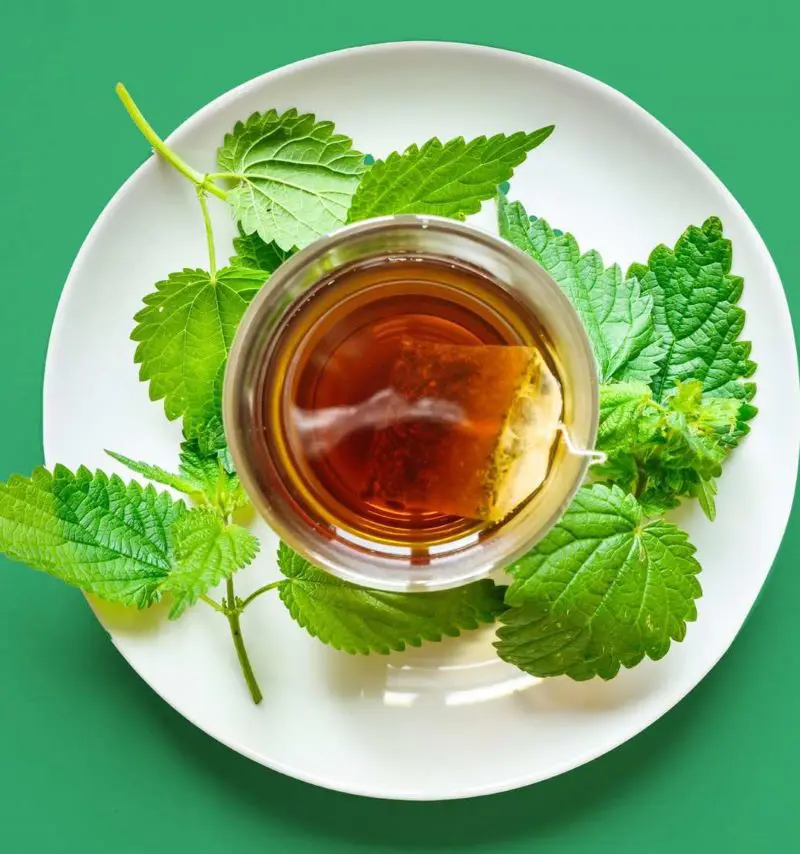
Nettle tea is primarily prepared from the leaves of the nettle plant. It has been used in traditional medicines across several countries. Due to its anti-inflammatory and antioxidant components, the tea has been very useful in relieving cold-related issues like congestion.
So, whenever you suffer from a blockage in the nasal area, take a cup of nettle tea to quickly feel better. Having a cup of tea is not enough, you need to consume it 2-3 times a day regularly for a few days until you see some improvements.
You'll be able to make this tea with some easy steps. Simply boil a cup of water in a pot and add 1 tablespoon of fresh or dried nettle leaves. Then, boil the leaves for 5-10 minutes, strain the leaves, and enjoy the warmth of nettle leaves.
However, make sure that solely relying on tea may not be effective if the cold has become too severe. In such a case, go and visit your doctor.
10. Licorice Root Tea
Licorice is a plant that has been in existence for ages. This plant is said to relieve several health issues including congestion. The root of licorice has some amount of anti-inflammatory chemicals that reduce swelling by clearing out the mucus in nasal passages. As a result, it brings easiness in breathing and provides relief with cough.
Daily moderate consumption is essential to obtain help with congestion. Prepare this tea by adding a tablespoon of licorice root in the water and boiling it for 5-10 minutes. During this time, the roots properly dissolve into the water by releasing its anti-inflammatory properties.
Now, pour the tea into a cup and enjoy its warmness along with its benefits. However, it is not advisable to take licorice tea if you have heart-related issues, breast cancer, ovarian cancer, or uterine cancer.
11. Rosemary Tea
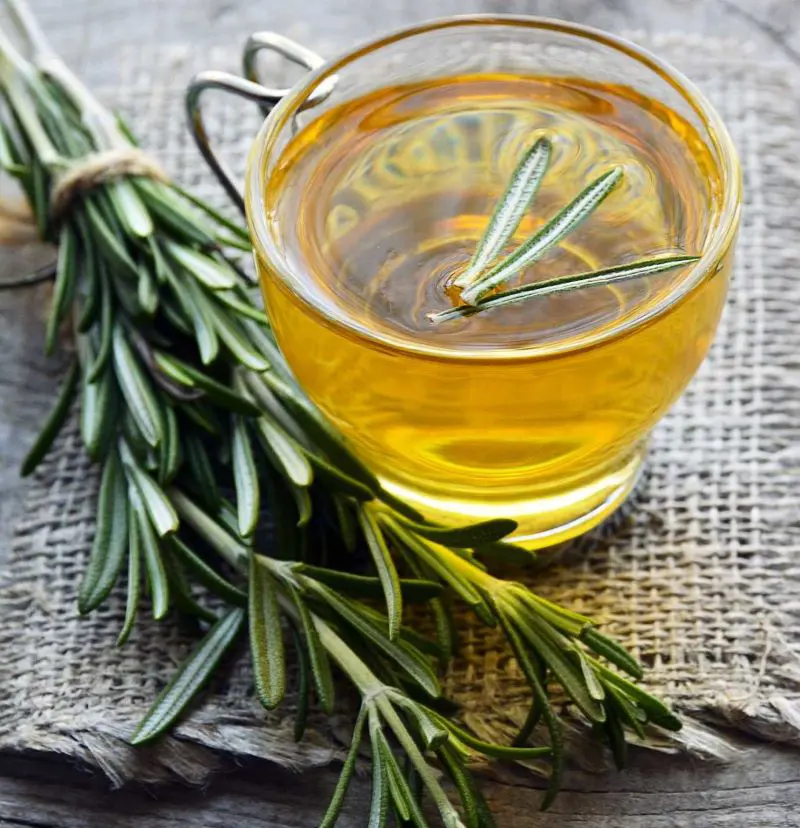
There has been a major use of rosemary for aromatic uses, especially in culinary. The herb is also used in Ayurveda to make several medicines. This plant is usually found in any part of the world.
Rosemary is proven to help with congestion. The reason is its high antioxidant, anti-inflammatory, and antimicrobial compounds. These compounds reduce oxidative damage and inflammation in the body. As a result, it helps to boost immunity power.
Also, those components clear out the mucus in the respiratory tract and make breathing easier. Take a cup of rosemary tea to ease the blockage in the nose. You can prepare this tea by boiling rosemary leaves in the water. Based on your taste, add honey and enjoy the warm and relaxing tea by straining its leaves.
12. Cinnamon Tea
Cinnamon is one of the most used herbs for culinary purposes. The herb has a sweet and aromatic fragrance that makes any dish flavorful. Besides this, cinnamon is widely used in tea to relieve the cold.
Cinnamon contains cinnamaldehyde, which efficiently works to reduce cold-caused inflammation. Being an antimicrobial compound, it also combats viruses that affect respiratory tracts. The ultimate goal of these compounds is to clear the mucus in the nasal passage and allow easy airways. As a result, you feel comfortable while breathing.
Do one thing, add 1-2 teaspoons of cinnamon powder to a cup of boiling water. Also, add honey to your taste and boil the tea for 5-6 minutes. Pour the tea into a cup and enjoy the warm fluid to relieve congestion.
13. Elderflower Tea
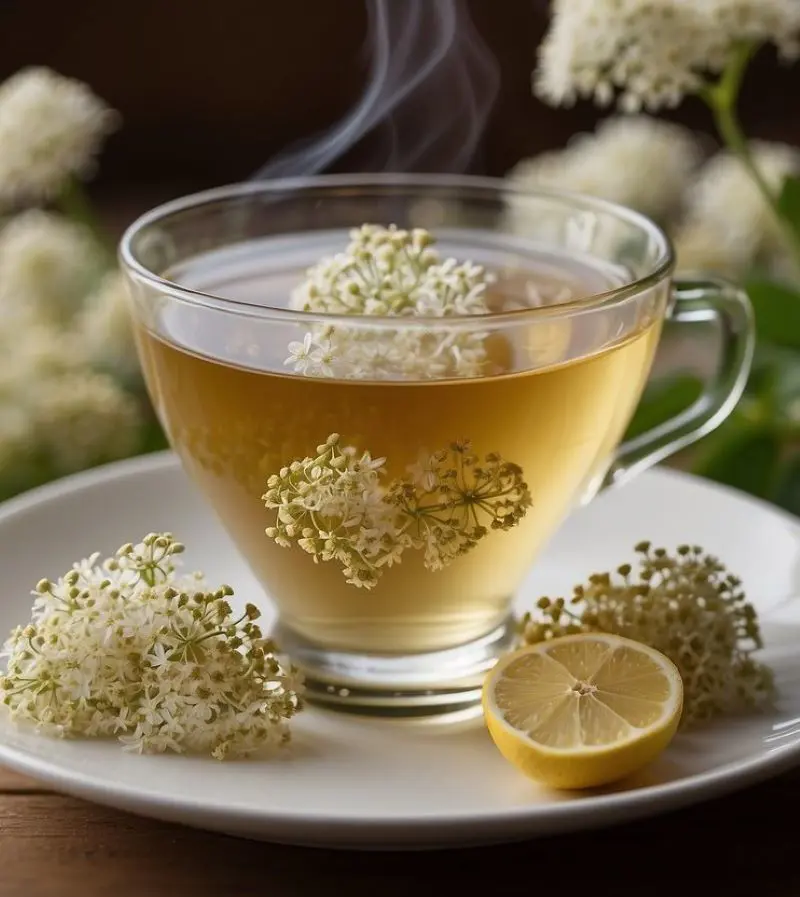
Have you ever tried taking elderflower tea for your sinus-related issue? If you have not yet, then try it when you or someone in your family goes through a cold. The tea is very impactful in relieving the flu, sinus infections, and respiratory infections.
You can find the flavonoids and saponins in the elderflower that treat swelling in the respiratory system. As a result, breathing becomes easier and the blockage in nasal passages gets cleaned out.
Another compound that is found in this tea is an antiviral. This compound works to fight against any harmful bacteria or viruses that bring up congestion in your nasal passage.
So, include elderflower-dried leaves in a pot while you make tea to get away with cold-related issues.
14. Eucalyptus Tea
One of the teas that treats cold, flue is eucalyptus tea. This tea is made from the leaves of an Australian eucalyptus tree. As its name, this tree is mostly found in Australia.
This hot herbal tea is an effective solution to cold and sinus-related issues like blockage. Its effectiveness is due to the existence of anti-inflammatory and antioxidant components in the tea. These aid in soothing the congestion as a result make breathing easier.
Regular intake of this tea helps to boost immune power and prevent further cold-related infections. The tea is usually available in supermarkets. Simply go and get a pack of it. Then, dip a teabag in hot water and feel the entrance of warm tea inside your body.
In case you don't like its taste, add honey according to your taste to bring some sweet flavor. Honey also works as a soothing agent to relieve the cold.
15. Hibiscus Tea
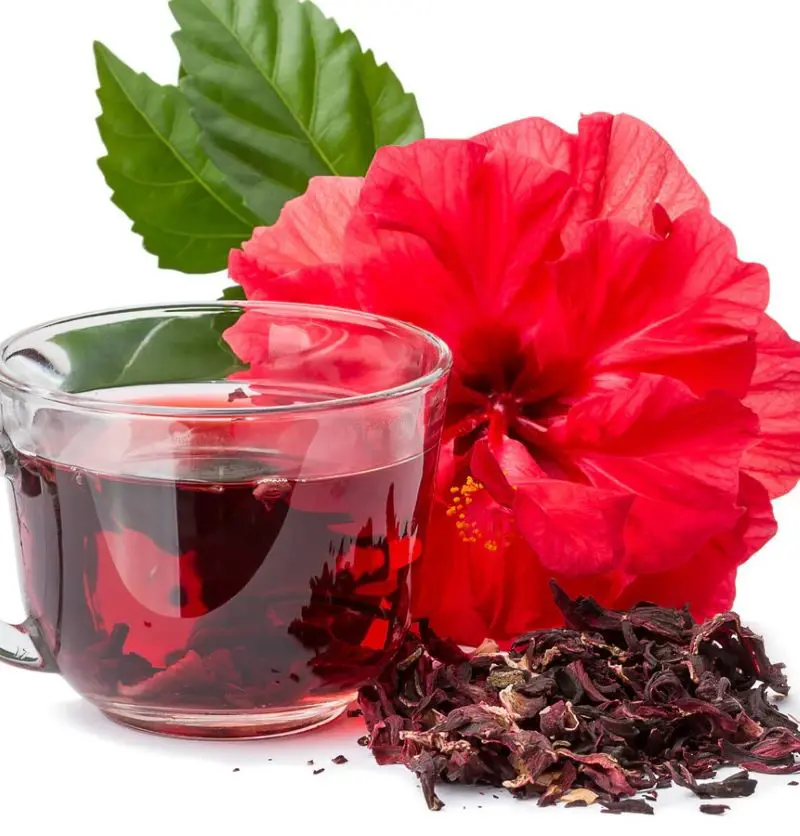
The hibiscus is a flower-based plant that has red or deep pink wide petals. This flower can be found anywhere around the world. They grow pretty well in temperate environments.
This easily accessible flower is also used to make tea. Mainly, its petals are used once dried. The petals contain vitamin C and flavonoids. These components are proven to cure inflammation and improve immune power.
The tea works best to treat cold, and sinus-related problems. The essential properties of tea act as a short-term reliever for a blocked nose. Just include the dried petals in the boiling water and boil it for 5-10 minutes. By that time, the herb blends well in the water. Now, add some honey for sweetness and drink this warm and healthy tea to minimize the congestion.
Recent posts
Nutrition
Nutrition
Liquorice Root: Benefits And Uses
You can spell it liquorice or licorice; this herb or root has been in use for centuries in most medicinal applications, as a natural sweetener and to enhance flavors. Regarding its origins, it comes from the root of the "Glycyrrhiza galbre" plant and...
Nutrition
Is Ramen Healthy? Here's What Dietician Says
Ramen is a traditional dish from Japan that in the recent era has become a global phenomenon. This beloved and comforting soupy dish however has been questioned, when it comes to its nutrition. Best for those looking for a quick (instant), affo...
Nutrition
Is Wheat Bread Healthy? An Expert Picks
Wheat bread has been proudly celebrated as a dietary staple in countless homes for as long as people can remember. It has earned a reputation as a healthier alternative to white or any other processed bread, that no one can deny. Because of its evide...
Nutrition
Is Sausages Healthy? Nutrition And Health Benefits
Sausages are tasty in an addictive way, making them one of the most popular foods worldwide. You may have enjoyed this convenient food often, whether on a bun with mustard or grilled on a barbecue, the simple preparation methods are what makes its co...
Nutrition
Ice Cream Benefits: Nutrition, Potential Risks And Best Choices
Not gonna lie, ice cream is often taken as a guilty pleasure treat, a delightful treat that takes you to cloud nine but is frequently associated with negative health implications. Nonetheless, the happy news is when devoured mindfully, ice cream can ...
Nutrition
Is Sushi Healthy? Some Good and Bad Choices
Sushi is a wholesome meal and a beloved Japanese dish. The traditional sushi recipe is a simple combination of fresh fish, vegetables, and vinegared rice which is popular for its minimalistic preparation. As with any food, there are factors that dete...


